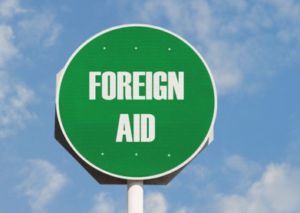UK government urged not to cut aid to Ghana ‘too quickly’
 Britain should not reduce its aid to Ghana “too quickly” even though the Ghanaian government is working to move “beyond aid”, a new report has warned.
Britain should not reduce its aid to Ghana “too quickly” even though the Ghanaian government is working to move “beyond aid”, a new report has warned.
The Independent Commission for Aid Impact (ICAI), which scrutinises the UK’s aid spending, said that the government’s overseas development assistance to Ghana had been “mostly effective” in helping “some of the poorest and most vulnerable” in the country.
“But as the country works to become less reliant on aid, the UK should take care not to scale back its financial support too quickly,” the report recommended.
“…crucial decisions on reducing aid in the social sectors were made without a sound analysis of the implications for service delivery,” the review said.
An ICAI team, which was in Ghana last June, held consultations with key figures in the country as well as ordinary Ghanaians
The review, the first by the independent aid watchdog to examine a country’s entire aid portfolio in depth that included feedback from more than 800 Ghanaians, looked at how the UK government’s support for Ghana was changing.
The ICAI noted: “Although still affected by significant poverty and inequality, Ghana is working to move ‘beyond aid’ after moving up from the lowest-income category of countries. “In response, the UK has reduced the funding it gives directly through government channels, instead providing technical support and funding through other organisations with the aim of helping Ghana drive its own development.”
But the review found that “decisions on where to cut the UK’s funding – amounting to £2.8 billion in bilateral aid between 1998 and 2017 – were not always based on a sound analysis of the impact it would have, particularly in social sectors such as health or education, creating a risk that the strong results previously achieved might not be sustained”.
The review covers almost all UK aid to Ghana from 2011 to 2019.
The ICAI said that since 2011, the UK’s aid portfolio had been “reoriented towards helping Ghana overcome its economic and governance challenges, and towards mobilising the resources to help Ghana finance its own development”.
At the same time, the UK continued to finance education, health and social protection programmes in Ghana, but with less funding, the review found.
It said the Department for International Development (DFID) “should ensure that the pace of ending the bilateral financing of service delivery in areas of continuing social need must be grounded in a realistic assessment of whether the gap left will be filled”.
“DFID should include information on citizen needs and preferences as a systematic requirement for portfolio and programme design and management.
“The government should provide clear guidance on how UK aid resources should be used in implementing mutual prosperity objectives.”
The ICAI recommended that DFID “should ensure that the pace of ending the bilateral financing of service delivery in areas of continuing social need must be grounded in a realistic assessment of whether the gap left will be filled”.
It said that UK aid should contribute “to inclusive growth in Ghana so that the benefits from a growing economy are shared widely among the population”.
No one should be left behind, with aid aimed at “tackling extreme poverty and vulnerability in Ghana, including through addressing gender disparities, and supporting Ghana in developing competent and sustainable institutions”.
“DFID Ghana should learn from its own successes and failures when designing and delivering its systems, strengthening support and technical assistance.
It added that: “DFID should include information on citizen needs and preferences as a systematic requirement for portfolio and programme design and management.
“The government should provide clear guidance on how UK aid resources should be used in implementing mutual prosperity objectives,” the ICAI review added.
The UK government is yet to respond to the review.
Source: GNA
